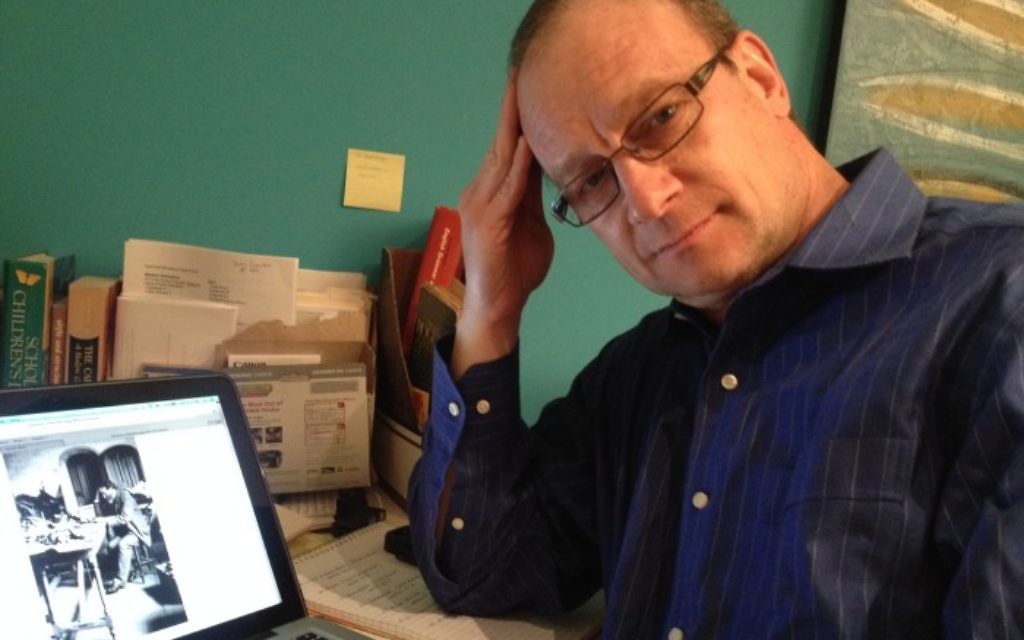A Day in History 30 Years On
The reminder came from Jerry Klinger, the founder and president of the Jewish American Society for Historic Preservation.
The retired financial services executive has dedicated many years to ensuring that noteworthy pieces of American Jewish history are not forgotten.
On a stifling day last June, Klinger participated in the dedication of a plaque outside the Atlanta History Center to honor Gov. John Slaton for his commutation of Leo Frank’s death sentence to life imprisonment June 21, 1915. (Frank was scheduled to be executed the next day. Two months later, on Aug. 17, he was kidnapped from the state prison in Milledgeville and lynched in a Marietta woods.)
Get The AJT Newsletter by email and never miss our top stories Free Sign Up
Klinger emailed the Jewish Telegraphic Agency dispatch reporting that on March 11, 1986, the Georgia Board of Pardons and Paroles issued a posthumous pardon to Leo Frank.
Today, Dale Schwartz is a prominent immigration attorney. Thirty years ago, as a member of the Anti-Defamation League’s Southeast Region board, he was the lead counsel for the pardon application process.
Last summer, Schwartz described that effort as being “like Sisyphus pushing that rock up a hill.”
Part of that rock included Atlanta’s Jewish community. Schwartz recalled a meeting of 300 to 400 people at the Jewish Community Center. The ADL, American Jewish Committee and the Atlanta Jewish Federation — the organizations behind the appeal — were urged to leave the past alone.
“People begged us not to do it,” Schwartz said.
In 1983, the Georgia board rejected a pardon application filed after 85-year-old Alonzo Mann came forward with his memories of April 26, 1913, the day 13-year-old Mary Phagan was murdered at the National Pencil Co. factory in downtown Atlanta. (Schwartz remembers Mann telling him that he heard anti-Jewish epithets as he entered the courthouse to testify.)
The state board determined that “it is impossible to decide conclusively the guilt or innocence of Frank,” the plant manager arrested and convicted of Phagan’s murder.
Three years later, Schwartz and his colleagues made “not a legal argument so much as a political or emotional plea.”
The board granted that application “without attempting to address the question of guilt or innocence and in recognition of the state’s failure to protect the person of Leo M. Frank and thereby preserve his opportunity for continued legal appeal of his conviction, and in recognition of the state’s failure to bring his killers to justice.”
The pardon changed public discussion of the case. “Especially after we got that pardon, it was like a big catharsis. People who hadn’t talked about the case suddenly were telling their grandchildren,” Schwartz said last summer. “People began to talk about it. It was like lifting a burden off their shoulders.”
Contacted a couple of weeks before this year’s 30th anniversary, Schwartz said, “I remember the great joy I felt when I got news of the pardon’s having been granted! We had worked on this case for over five years. I remember thinking that the Anti-Defamation League could finally close its case No. 001 after over 70 years and that the ADL and the KKK were still bitter enemies. I recalled the opening words of the brief written by Charles Wittenstein and me: JUSTICE, JUSTICE SHALT YOU PURSUE!”
That day stood out for another reason. Schwartz was returning from Asheville, N.C., with his attorney, Eddie Garland, after the dismissal of a federal indictment against him stemming from his work on an immigration case.
“When I pulled my car up under the wing of Eddie’s plane, I turned on WGST Talk Radio to see if they were reporting the dismissal against me. Lo and behold, the news announcer said: ‘We bring you this breaking news. Today the Georgia Pardon and Parole Board granted a posthumous pardon to Leo M. Frank, the Jewish businessman who was lynched in Cobb County in 1915.’
“I started crying, I was so happy. My wife, Susan, looked at me and in her usual understated way said, ‘You know, as days go, this wasn’t a bad day!’ ”





comments